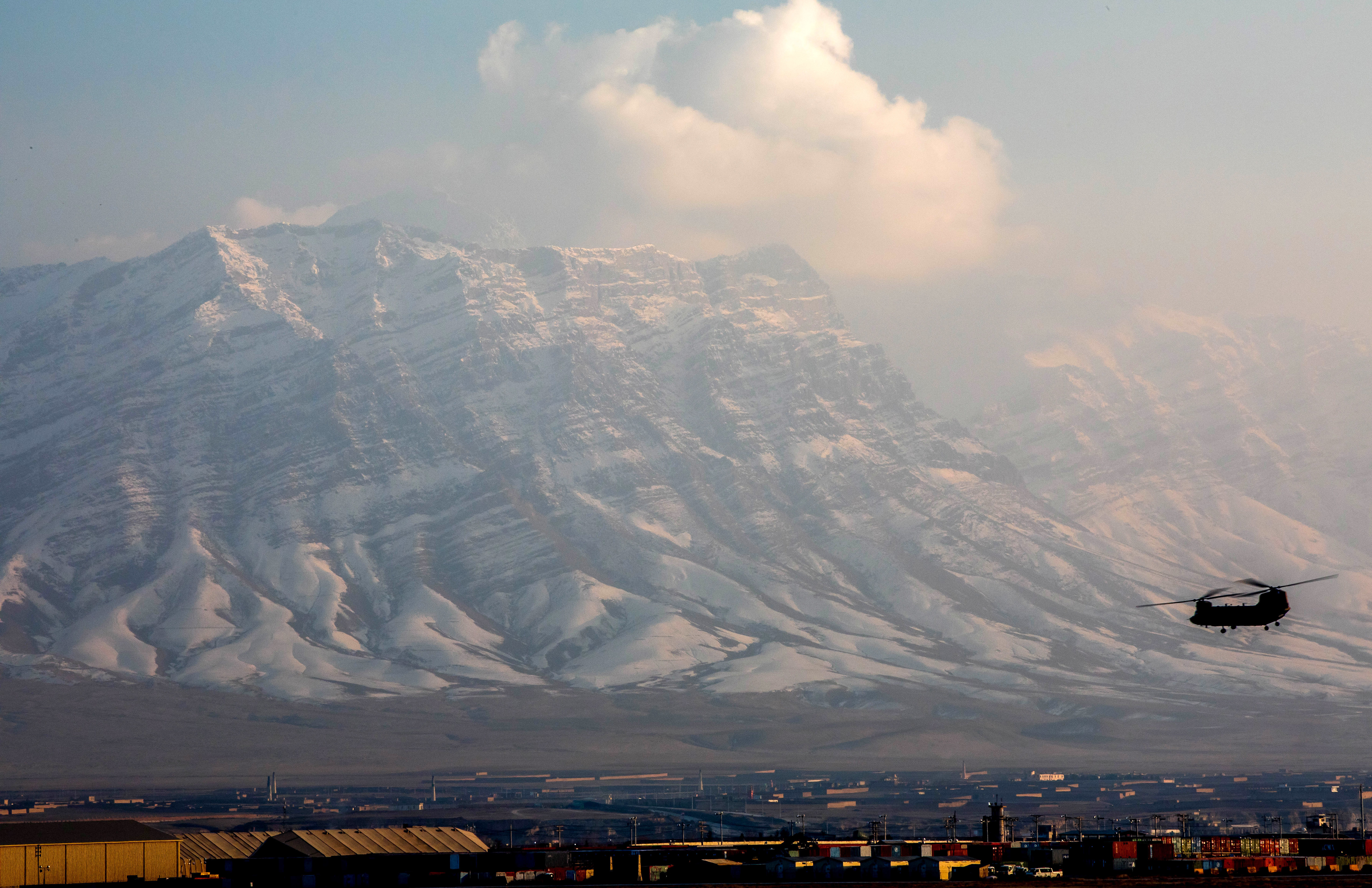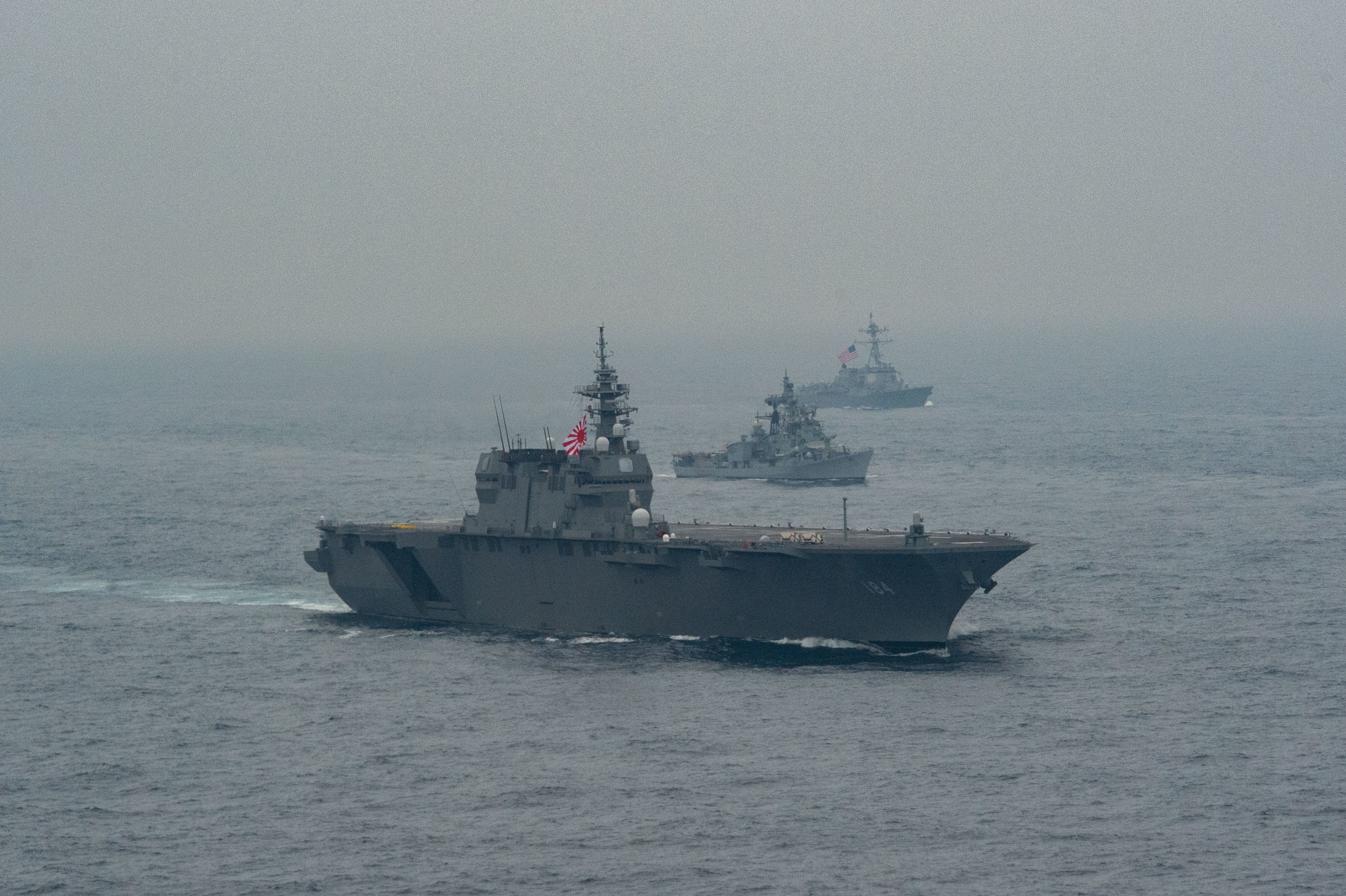
The Taliban has shown no interest in cooperating with Afghan President Ashraf Ghani to combat the COVID-19 pandemic spreading from Iran, creating the latest obstacle to peace, four regional experts said Monday.
The experts, speaking via ZOOM from around the globe, were part of a Woodrow Wilson Center Webcast: What’s Next for the Peace and Reconciliation Process in Afghanistan? A month after the U.S. and Taliban signed a troop withdrawal agreement, negotiations between the Afghan government and Taliban were to be working toward ending the 19-year conflict.
“There’s been no reduction in violence” in the countryside where the Taliban continues to attack Afghan national security forces, said Sami Mahdi, bureau chief of Radio Free Europe/ Radio Liberty Afghanistan Service, speaking via ZOOM from Kabul. So far, he added, Taliban forces have carefully avoiding striking American service members, part of a pact it reached with the United States earlier.
At the same time, the spread of COVID-19, especially along Afghanistan’s western border with Iran, is further destabilizing the peace effort. In Herat Province, “thousands of Afghans are returning from Iran” to escape the outbreak, Mahdi said. Their arrival puts more stress on a woefully inadequate health care system.
Instead of Afghan government action, “the Taliban has established their own set of groups fighting COVID-19,” including enforcing quarantines, while also but relying on non-governmental organizations to deliver care, Mahdi said. “If the Taliban really wanted” to cooperate with Ghani’s government, “they should stop fighting” and contain the pandemic as best they can in areas they control.
The “Taliban are calculating how much violence they can get away” as they swing into another spring offensive and factor in the pandemic, said Ashley Jackson, a research associate at the Overseas Development Institute speaking from Oslo, Norway.
So what do the Taliban want?
Jackson said, “they’ve been very smart. They’ve been very vague,” giving only hints of establishing an emirate and maybe one with a constitution, under Sharia law.
There’s a trap in citing Sharia law as a basis for government, Mahdi said. The Taliban’s definitions of Sharia law differs greatly from the government’s interpretations of it over basic rights. The hard truth after 18 years of American military, political, diplomatic and economic involvement in Afghanistan is “we don’t know what their hard red lines are,” Jackson added.
The combatants are at extremely high risk of infection because they are concentrated in large groups to continue military operations or defend positions, She added. “The Taliban and the Afghan national security forces will be affected” unless there is a ceasefire. In that case, she suggested monitoring by the World Health Organization or the U.N. to ensure care and containment.
“Most health care is delivered by NGOs in the villages,” including those controlled by the government, Jackson said. If their doctors, nurses, and medical staff can’t get to those locations or are stricken themselves, the virus can spread even more rapidly across the nation.
At the same time, Mahdi and the others said the public is skeptical of government statements about the extent of the outbreak in Afghanistan the government’s ability to contain COVID-19. The reality on the ground is the pandemic is only the latest stumbling block to achieving peace in Afghanistan.
The question of who leads the Afghanistan government has been muddled in a four-month-long dispute over the presidential election results and both sides inaugurating a president.
Although the United States recognizes Ghani as having won the presidency, his chief rival Abdullah Abdullah, former chief executive officer in Afghanistan’s Unity Government, has refused to accept the results.
Many Afghans see the political in-fighting in Kabul and the long delays in getting negotiations with the Taliban going increasingly as “an elite-based political process” where the public’s interests are pushed aside for private gain, said Nilofar Sakhi, a lecturer at George Mason University in Virginia.
The involvement of Afghan leaders, including former President Hamid Karzai, in trying to bring the two sides together has failed. Even the threat, made by U.S. Secretary of State Mike Pompeo, to withhold $1 billion in aid has yet to bring the two sides closer to an agreement.
Sakhi conceded, under present circumstances, she has “a negative, pessimist’s view on the peace process overall.”
The Afghan government did not participate in the American-Taliban talks where the release of the prisoners was agreed to, so that was a sticking point in moving talks along between Ghani and the Taliban. At about the same time, the Taliban rejected out of hand the 21 negotiators the Afghan government proposed to carry out the talks for a final peace agreement, placing another hurdle in the path of a peace accord.
“The elites in Kabul are tearing themselves apart,” Jackson added in assessing the continuing divide over who is the legitimate leader of its government and the continuing delay in talks. The COVID-19 pandemic also has curtailed the possibility of face-to-face meetings.
“The Taliban believes it benefits” by the political divide and delays caused by the pandemic.
Skype and Zoom meetings can only go so far, said Laurel Miller, director of the Asia program for the International Crisis Group. Everything is “quite stilted” in these arrangements. There are no side meetings or private discussions where the participants get to know each other and develop ways to move forward.
“This is not a Colombia situation,” where a strong government backed by the United States and regional partners finally worked out a peace agreement with the largest group of insurgents, MIller said. This time, a “neutral-empowered mediator,” not a facilitator or one backed only by Washington, is needed to work out a peace agreement between the Taliban and government.
The U.S. is not alone with having an interest in what happens in Afghanistan, the panelists agreed. Iran, Pakistan, Russia and China all need to be involved in achieving regional security compatible with a peace agreement. The U.S. needs to accept neighboring Iran and Pakistan need to be a part of any lasting peace. Russia’s back-door channel to the Taliban could also be instrumental in those talks.
“The U.S. needs to be patient in the peace process” and not have “a short-time focus” on achieving results to meet a presidential election-year deadline, Miller said. The danger in rushing to an agreement is setting up “an interim government [that] would be very weak” and in danger “of falling apart very quickly,” leading to a new civil war.





